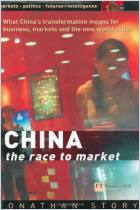Join getAbstract to access the summary!

Join getAbstract to access the summary!
Thomas J. Christensen
The China Challenge
Shaping the Choices of a Rising Power
W.W. Norton, 2015
What's inside?
Former US diplomat offers a cogent assessment of China’s economic, political, and military power.
Recommendation
Princeton professor and former State Department official Thomas J. Christensen offers an insider’s analysis of what China’s rising power means for the United States, for the world at large and for China domestically. With the judgment of a diplomat and the rigor of an academic, Christensen provides a nuanced assessment of the challenges that China’s development and international ascent pose. He suggests strategies that the US can apply to influence China’s rise in the political, economic and national security arenas. getAbstract recommends this distinctive analysis to those in diplomacy, international development, investments, offshoring or any other endeavor in which China may be a factor.
Summary
About the Author
Thomas J. Christensen was deputy assistant US secretary of state for East Asia and the Pacific from 2006 through 2008. He is William P. Boswell Professor of World Politics and directs the China and the World Program at Princeton University.






















Comment on this summary